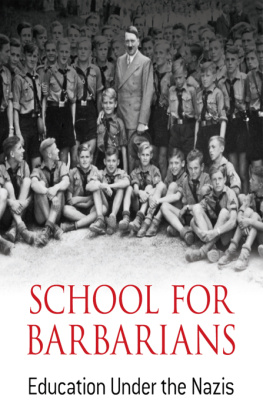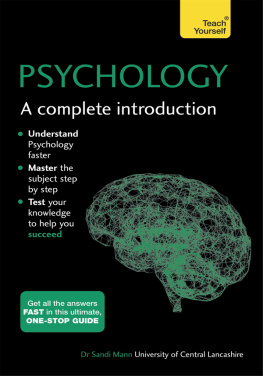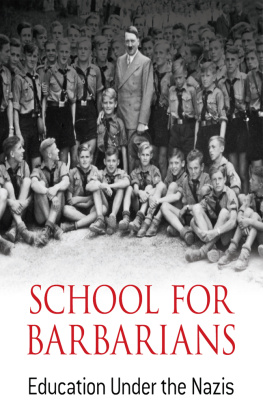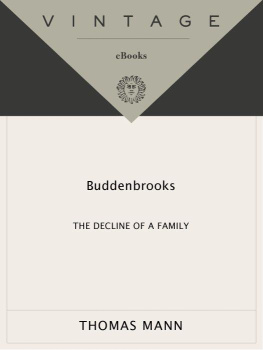INTRODUCTION
T HROUGHOUT MY WHOLE long journey from East to West and back again across the vast continental stretches, the author of this book, my dear daughter Erika, was beside me; her faithful help enabled me to meet the demands of an enterprise, fruitful and gratifying indeed, yet at the same time not always easy. How often did she not act as interpreter between me and the public; both with the press, and when, after a lecture, I was questioned by the audience! I would answer in German, English being still rather hard for me; and she would skillfully translate skillfully, and as I think very much to the advantage of my replies; since there was added to their content the charm of a sweeter voice and the animation of a gifted and intellectual feminine personality.
Accordingly my pleasure is great in being able to act the interpreter in turn between her and the American public; and to introduce her book to readers who are interested in the political and moral problems of the day. It has a repellent subject, this book: It tells, out of a fullness of knowledge, of education in Nazi Germany and of what National Socialism understands by this word. Yet strangely enough, the book is the opposite of repellent. For even its pain and anger are appealing; while the authors sense of humor, her power of seeing the funny side, the gentle mockery in which she clothes her scorn, go far to make our horror dissolve in mirth. It enfolds the unlovely facts in a grace of style and a critical lucidity; and most consolingly opposes to the shocking and negative qualities of malice and falsity the positive and righteous force of reason and human goodness.
The fundamental theme of the book, education in Germany, proves to be an extraordinarily fruitful point of departure for an exposition of the whole National Socialist point of view. That it should be a woman who has chosen it is not strange, but it is surprising to see what a comprehensive and fully informed portrayal of the totalitarian state results from this deliberate limitation to a single theme. The picture is so complete that a foreigner wishing to penetrate into that uncanny world might say that he knows it after he has read this book. All the grim concentration of the present German leaders on the single thought of the power of the State; all their desperate determination to subordinate to that idea the whole intellectual and spiritual life of the nation, without one single human reservationall of it comes out with startling clarity in this description and analysis, accompanied by a wealth of only too convincing detail of the National Socialist educational program.
I say program because it is of the future. It is an inexorable first draft of what the German of the future is to be. Nothing escapes it. With iron consistency and relentlessness, fanatically, deliberately, meticulously, the Nazis have gone about putting this one single idea into practice and applying it to each and every department and phase of education. The result is that education is never for its own sake; its content is never confined to training, culture, knowledge, the furtherance of human advancement through instruction. Instead it has sole reference, often enough with implication of violence, to the fixed idea of national preeminence and warlike preparedness-.
The issue is clear! It is a radical renunciationascetic in the worst sense of the word of the claims of mind and spirit; and in these words I include the conceptions truth, knowledge, justice in short all the highest and purest endeavors of which humanity is capable. Once, in times now forgotten, we knew a definition: to be German, means to do a thing for its own sake. The words have lost all meaning. German youth is to devote itself to nothing for its own sake; for everything is politically conditioned, everything shaped and circumscribed to a political end. The sense of objective truth is done to death; it is referred to something outside of itself, to a purpose which must be a German purpose the purpose of the State to have absolute power over the minds of men within its borders, and to extend its power beyond them.
Such an arbitrary purpose, such a permeation of all truth and all research with political aims, makes us shudder; and the shudder is even more physical than it is moral. The program is so violent, so unhealthy, so convulsive that it thereby betrays how ill-adapted it is to the nature of the people upon whom it is inflicted or rather, who believe that they must inflict it upon themselves. The glory of the German nation has always lain in a freedom which is the opposite of patriotic narrow-mindedness, and in a special and objective relation to mind. Germany gave birth to the phrase: Patriotism corrupts history. It was Goethe who said that. The true and extra-political nature of this people, its true vocation to mind and spirit, become clear today in the very immoderation, the thoroughness with which it abjures its best, its classic characteristics, offering them up on the altar of totalitarian politics at the behest of leaders who do not feel the sacrifice. This people of the middle is in actual fact a people of extremes. Shall we have power, shall we be political? Then away with spirit, away with truth and justice, independent knowledge and culture! Heroically it throws its humanity overboard, to put itself in alignment for world-mastery.
Should not one remind them of the words of the Scriptures: What is a man profited, if he shall gain the whole world, and lose his own soul? The words do not deny the existence of power. They do assert the truth: that power must have content and meaning, an inner justification in order to be genuine, tenable and recognized by mankind; and that this justification comes only from spirit. Is it not hopeless folly to seek after a good by means which emasculate and demolish the very good one is striving for? How do the German people and their leaders picture to themselves the exercise of a European hegemony paid for by such moral and intellectual sacrifices as are demanded by the National Socialist plan of education? Have, in fact, a people any calling to power, when they must make such sacrifices to achieve it? When they must put at their head all the lowest and basest elements, all the worst and crudest, most un- and anti-intellectual, and give these absolute power over themselves?
Is the world to be won over in such a wise, even after one has dominated it? Can a power persist and be applied, when it had to assert itself against the whole pressure of scorn and hatred which such methods invariably call forth? Is it not indeed a pathetic delusion, that a people who have put themselves or been put in the position of the German people today could ever conquer anything? A people intellectually debased and impoverished, morally degraded and they expect to conquer the earth! It makes one laugh. We do not get the better of others by destroying ourselves; and nothing is more foolish than to take all idealism for stupidity. Truth, and the freedom to seek it, are not luxury-products which enervate a people and unfit them for the struggle of life. They belong to life, they are lifes daily bread. The saying Truth is what profits me springs from the depths; from the convulsions of an anti-idealistic ideal which deludes nobody, uses nobody to its own good, but simply hastens its own collapse. It is an open secret that German science is deteriorating, that Germany is falling behind in all the domains of the intellect. The process will go irresistibly on, it will be irretrievably consummated in fact, if the sort of people who have the say today are given enough time to put into execution their malignant program of national fitness.
I join with the author of this book in the hope that the higher gifts and necessities of the German people may assert themselves betimes against presumptions so false and so hostile to life and to the human spirit.
Next page














